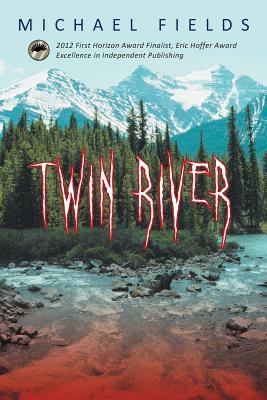Title: Twin River
Author: Michael Fields
Publisher: iUniverse
ISBN: 978-1-4759-8844-4
Pages: 276, Paperback/Kindle
Genre: Fiction
Reviewed by: Brandon Nolta, Pacific Book Review
Book Review
History shows that violence has a way of echoing throughout the ages, shaping the behavior and culture of those who survive and those who live in the area long after. In many ways, these effects can be subtle and minor, but for the characters in Fields’ novel Twin River discover, the shadows within themselves can interact with the past in unexpected ways.After opening chapters set in the late 18th century and the mid-1970s, the main plot of Fields’ narrative picks up in 1980 with Conner Brooks and Matt Henry, two friends with troubled family lives. Conner lives with his dad, a Vietnam vet with a long history of killing, while Matt is subject to multiple forms of abuse by his father. Overshadowed by Blood Mountain, the site of a massacre depicted in the first chapter, Conner and Matt try to navigate high school while beset with troubles above and beyond the normal teenage troubles: a pair of kidnappings, homicidal twin brothers preparing dark sacrifices in the hills, and corruption in the local police and sheriff’s departments. However, the darkest secret is one the boys aren’t even aware of at first: Conner’s father, Gene, didn’t leave his killing ways behind in Vietnam.
Although there are a number of subplots in the book – not all of which are resolved or successfully tied into the main plot; while the Revolutionary War-era opener is striking, for example, it isn’t used nearly as effectively as the extensive Vietnam flashbacks – the main thrust of the narrative is a coming-of-age story for both Conner and Matt, although there are strong hints throughout that Matt’s eventual destiny is far darker than one might expect for a nominal protagonist. This darkness weighs down the overall story, and makes it difficult to gauge where the author is planning to go. More importantly, it makes the anticlimactic ending more ominous than it needs to be, and helps give the whole novel a tone reminiscent of Dexter, but without the gallows humor.
Despite the tonal and thematic muddle, Fields’ writing is generally strong at a fundamental level, and he shows a clear command of character and description. In particular, the settings for the chapter in Death Valley and the flashbacks to Gene’s Vietnam service are rendered with flair and concision, capturing precise physical and emotional details and providing a clear context for the events set there. Unfortunately, the dialogue is not at the same level, with characters lapsing into explaining things other characters should already know and overwritten exchanges working double-duty as exposition; many of the early exchanges between Gene and his friends from the Vietnam days are guilty of this. Overall, there are a number of potentially fascinating story threads at work here – including the supernatural potential of the twin brothers (given the on-the-nose names of Cain and Abel) and their religious practices – but a lack of narrative focus and dialogue issues keep them from gelling into a coherent whole.



Follow Us